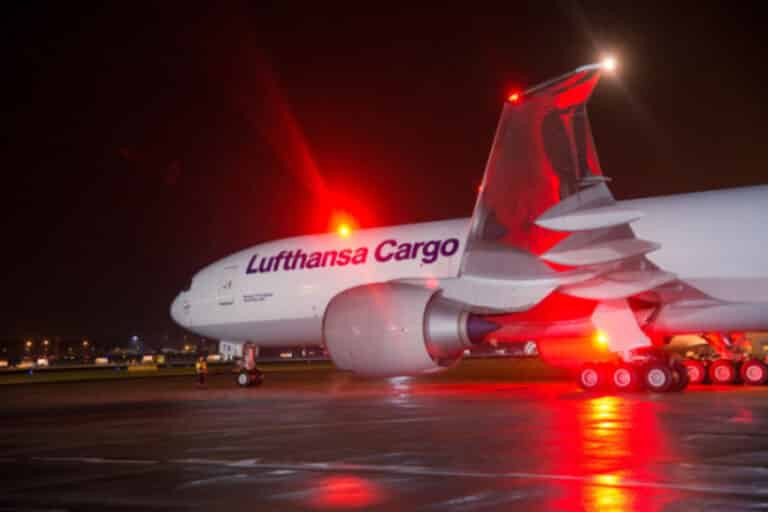Last year was challenging for Lufthansa Cargo, but the German carrier is optimistic 2017 will be a lot better.
Falling yields, overcapacity battles, pilot strikes and other challenges negatively impacted business for the German carrier in 2016.
Head of PR and internal communications, Andreas Pauker says 2016 was “primarily a difficult year in a challenging environment”, but the year-end rally had a positive effect on air cargo demand and the carrier was satisfied with the peak season.
Lufthansa Cargo will publish its annual results on 16 March and any affect of the pilot strikes is likely to be detailed. Talks with the union Vereinigung Cockpit on all open tariff-related matters is continuing to achieve alternative cost-savings within the framework of an overall solution.
“We regret last year’s strikes also affected some of our customers, but we did our utmost to minimise the impact. We actually succeeded in operating most of our freighter flights during the strikes,” Pauker explains.
Lufthansa Cargo’s strategy this year is to grow with its customers to be their first choice for air cargo. Pauker says this is why it started innovative online products and will continue to push digitisation to unlock further potential.
He adds: “Lufthansa Cargo is even boosting the advantages a combination carrier can offer by cooperating with cargo airline partners. Furthermore, our charter product network-on-demand complements the various products we offer, allowing us to meet all of our customers’ needs.”
The best performing trade lanes Pauker says was northern Asia, which it is set to grow through a new Sharjah-Hong Kong freighter service and North America (eastbound).
Investments in infrastructure are key to growth plans and Pauker says it will continue to build and make processes more efficient to meet market demand. The Lufthansa Cargo Cool Center in Frankfurt will be nearly doubled in size from 4,500 square metres to 8,000 square metres.
Pauker says: “We continue to see good growth opportunities in pharma shipping. The expanded facility should open this summer.”
Last year it was awarded IATA CEIV Pharma certification, which Pauker says was the fruit of work done on its Cool/td product over the last few years. This combined with further innovations and product improvements, he believes will make the carrier an even more attractive proposition to pharma customers.”
As for its fleet, Lufthansa Cargo plans to operate a Boeing 777F-only freighter fleet within the next decade, Pauker says. He notes: “Further details remain to be defined. Our MD-11F fleet is operating economically. The Airbus A350 with its 15-tonne freight capacity represents a useful extension to the fleet.”
Partnerships are seen as key to growth, and it forged a one-roof agreement in Frankfurt with Cathay Pacific in 2016. Pauker says it is generating even more efficiency and customers benefit from time-savings and having one location for exports and imports.
The joint venture (JV) with ANA will grow: “We will collaborate more closely with ANA through our JV in 2017. We plan to use more of each other’s capacity, gradually expand the product scope and continue working towards aligning our sales strategies.”



